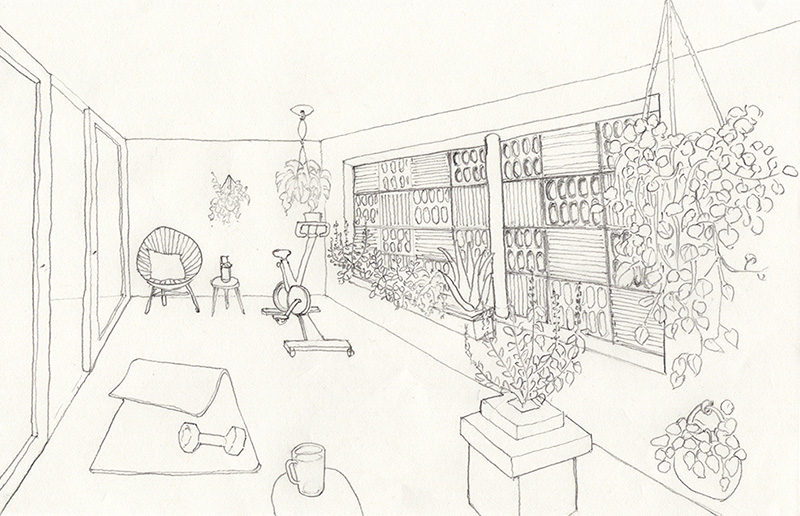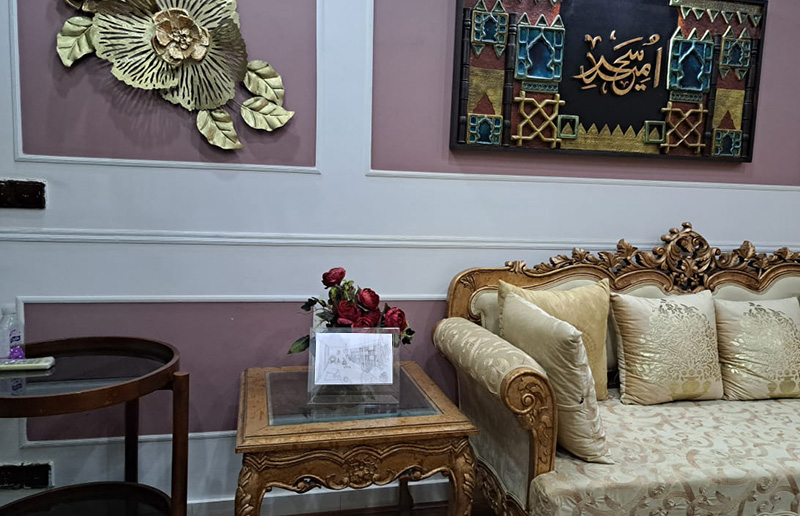

Click drawing


Listen
TranscriptKajal
6min 10s single channel audio of compiled whatsapp voice notes.
Translated by Yaminay Nasir Chaudhri
I have a ten year old son. I am from Pakistan. Karachi. I’ve lived here for the last 5 years. I am a pure housewife. So the second question was that “if we take out some time for ourselves from our busy life and tough schedule, which corner of the house would we get renovated according to our own taste?” I wanted to share what I had in my mind and I wanted to share that if I ever had this chance in life, I would renovate the gallery of my house. For instance, I love gardening. Some of our plants like coriander, mint, tulsi–these plants I grow myself. I would place these in my small gallery. I would order some plants also. Like aloe vera, and cactus. These are the plants I would place in my gallery and take care of them, clean them. These days, you know the artificial carpet that’s trending in the market–it’s green, like artificial grass, carpet–I will spread that on the floor and then you will have the plants. Then you will have the morning sunlight, so cool. Then I will sit in that light and– I love yoga– I will do yoga there. Then after that, to relax myself mentally and physically, I will have a mug of coffee. How amazing it feels when you sit with your chai or coffee by yourself. You have your own personal time that you enjoy in your own way. Whatever you do: mediation, yoga, aerobics–I love Yoga. That’s all. That’s my life’s dream. To take time for myself, personally. Think for myself. That’s all.
The balcony has a covered roof and then there is a grille, from where we get sunlight. If we have rain in our direction then water comes inside as well. Only when it’s raining heavily.
You remember that I am a coffee lover, no wonder you placed a coffee mug in the drawing!
OK, let me think about this in a little while and tell you what else should be added to this. I will tell you by tonight or tomorrow morning.
And, what about you, is everything well? We never spoke again after that day, you also became busy and me too. May Allah bless every desire of yours. (Azaan plays loudly in background) And our Diwali! Our Diwali is a grand celebration. Our Diwali is amazing. We start celebrating a week before. I have my own group, and we do a ladies’ celebration. Then after that we also have a big extended family in my in-laws, so we do a celebration in their bungalow, in Phase 6.
Hello assalamu alaikum, good morning! How are you? I think the chair should be exactly where you have put it. The exercise cycle I think should be brought forward. Or bring it to the other corner. Next to the coffee mug, place a water bottle. Or move the coffee mug and place a glass of juice. That will look better I think. If the water bottle looks good though, maybe you can also draw that.